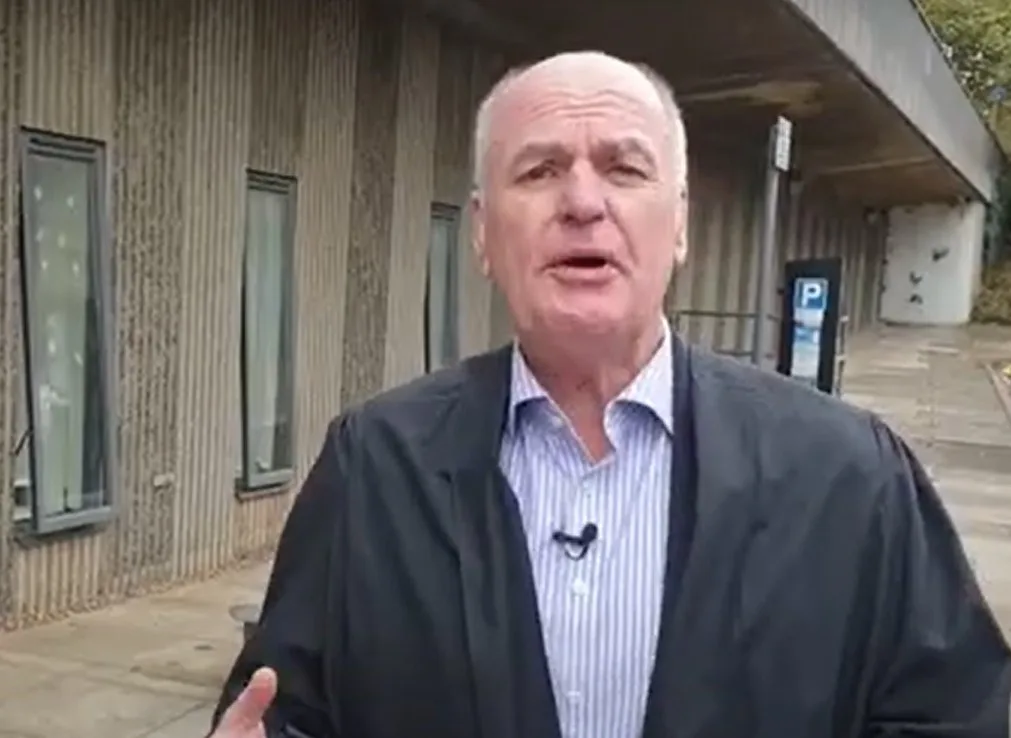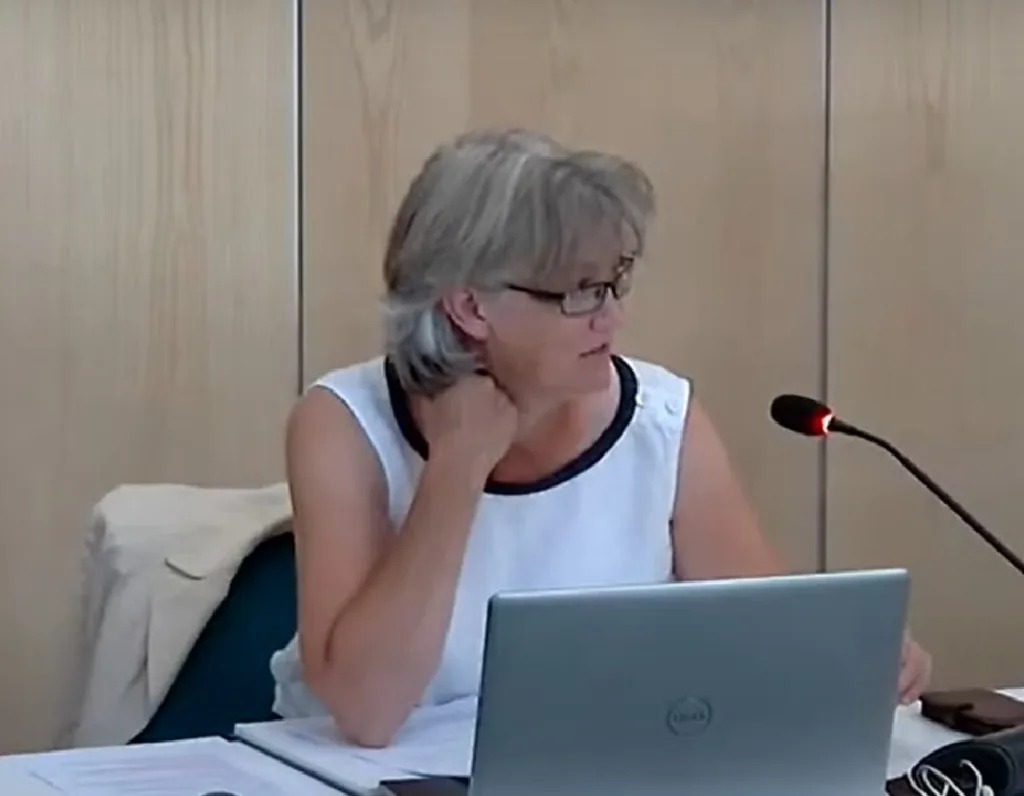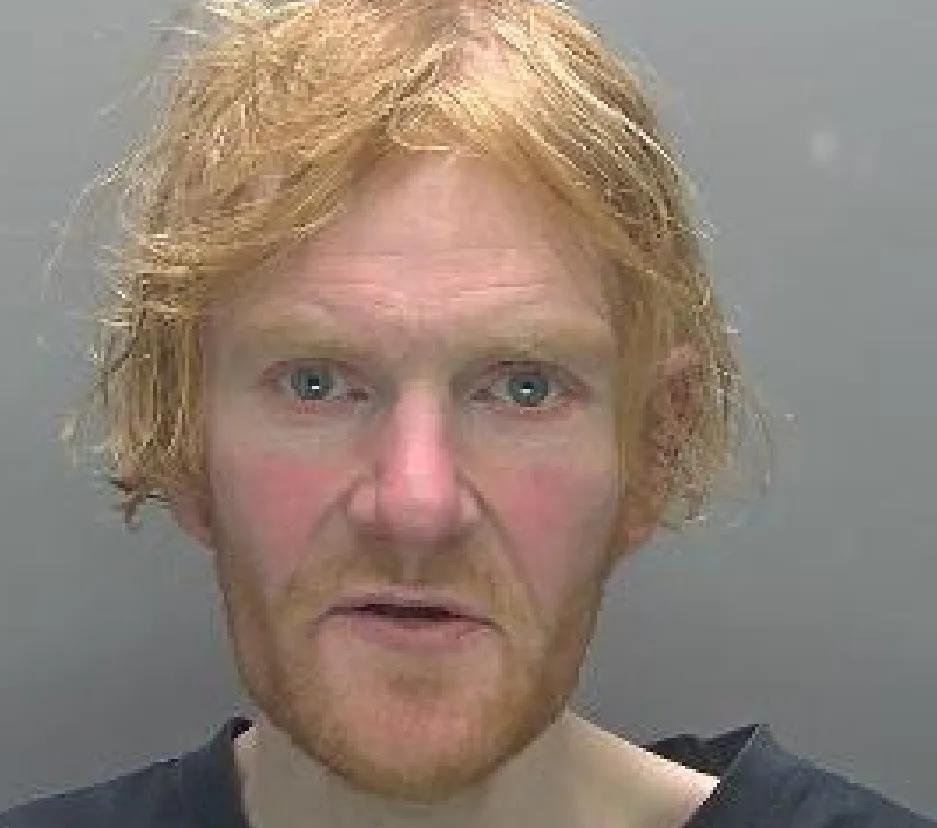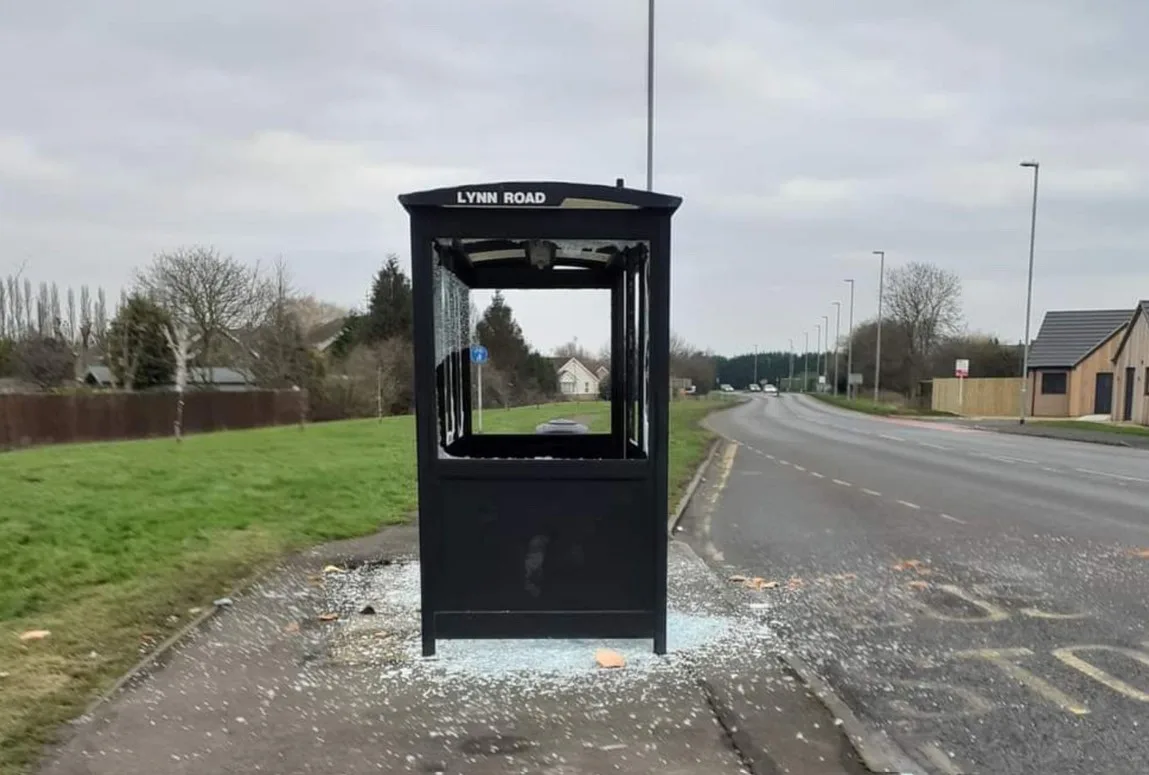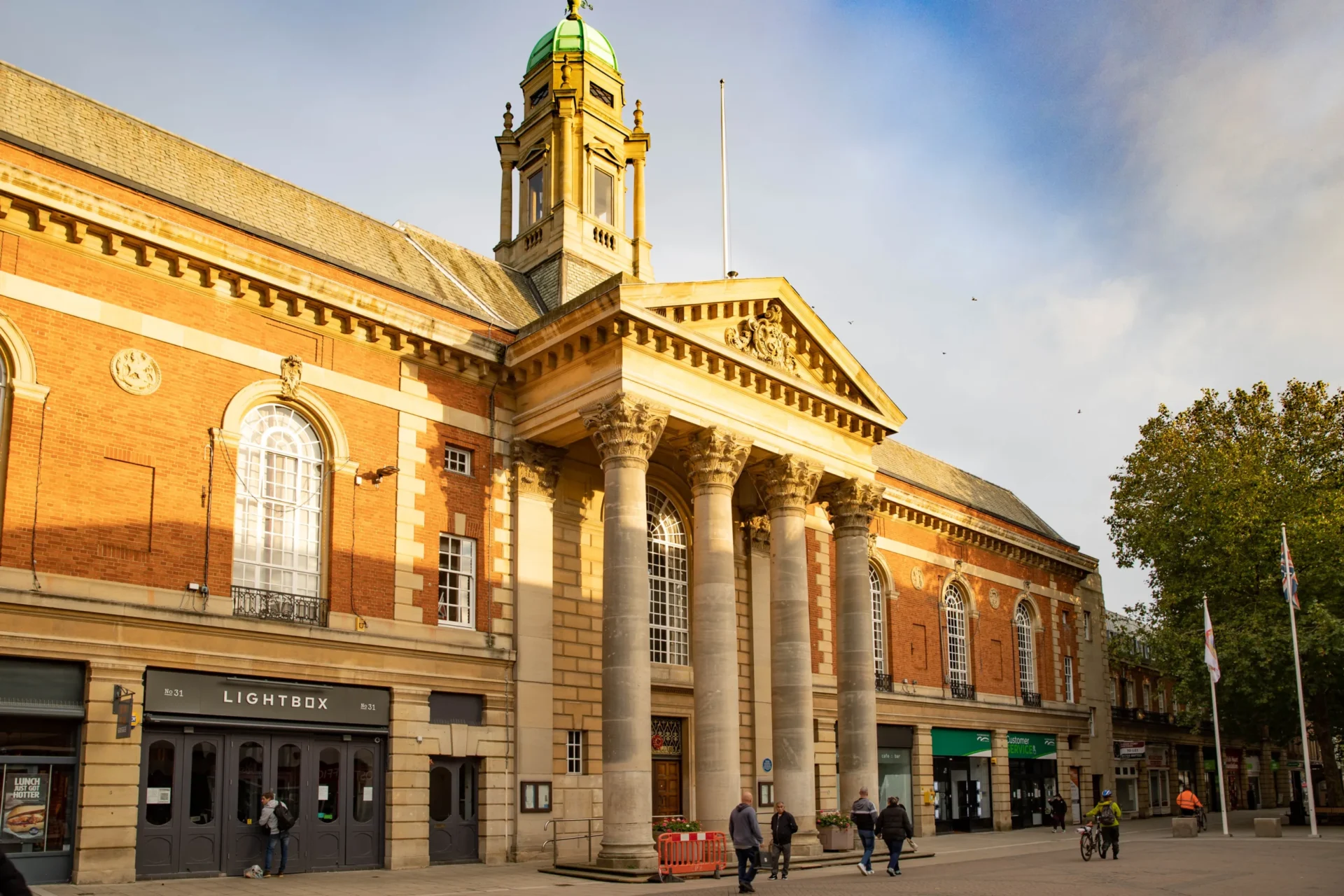Entrepreneur Peter Dawe has won permission to turn a small office block in into a five-bedroom hotel in Broad Street, Ely.
The one-time independent candidate to become Mayor of Cambridgeshire and Peterborough, won a successful appeal to the Planning Inspectorate.
Mr Dawe – whose lists of current projects include developing a single person electric car – appealed after East Cambridgeshire District Council failed to determine his application with the specified time frame.
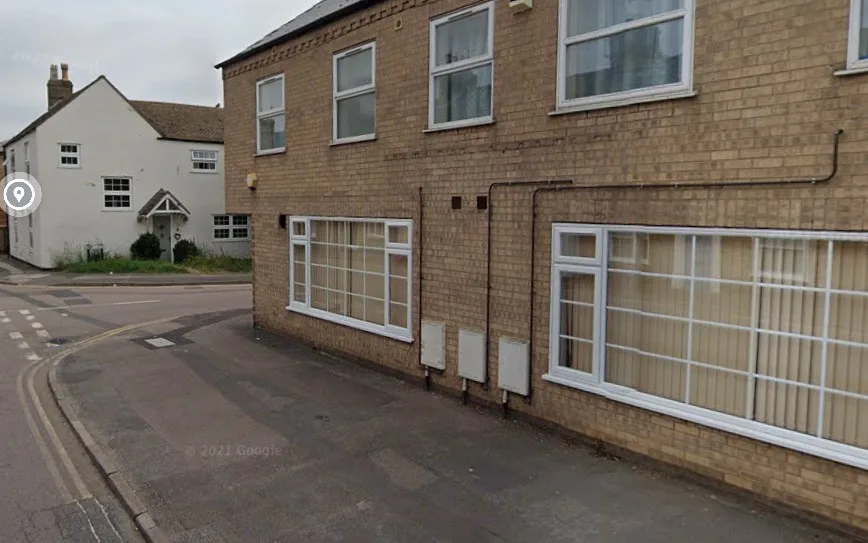
East Cambs planning officers told the planning inspector that “for the avoidance of doubt, the appeal against non-determination was submitted at a time when the case officer was on sick leave”.
Mr Dawe, a former UKIP county council candidate submitted the application through his trading arm Dawe Developments Ltd of Lanwades HaLl, Kentford.
He told the Planning Inspectorate: “The local authority has a legal duty to determine an application within a time frame.
“The authority has no latitude in this. If an officer is off sick, their processes should ensure the case is handled by another.”
And he pointed out that in a similar circumstance recently, South Cambridgeshire DC “politely asked for an extension, which I agreed to.
“I am sure if I was unable to achieve a planning deadline, I would not be forgiven.”
He rejected the council’s suggestion there would be a loss of community facility (part of the property was, until 2016, a pottery and firing shop).
Developing a small hotel, he argued, would support tourism and the council “recognised the need to enhance tourism facilities.
“Many visitors are drawn to Ely in order to visit the outstanding cathedral quarter.
“However, some argue that there is not enough to interest visitors to stay in the city, and this problem is made worse by the lack of good hotel accommodation.
“Hotel development is specifically identified in national planning guidance as a key town centre use, which can add vitality and viability to town centres.”
The council told the Planning Inspectorate they had concerns over the proposed hotel, which “has no reception area manned by staff and guests would have separate external access to the public realm”
The council also complained over the “loss of a community facility” and reminded the Planning Inspectorate the building once housed a pottery, painting and firing shop with offices.
“The provision of community facilities is vital to maintaining the quality of life in local centres”.
The council wanted Mr Dawe to have demonstrated the site had been marketed in its current state for 12 months to demonstrate, mainly, there had been continued interest in acquiring it.
They also told him he should have provided “evidence that all reasonable efforts have been made to preserve the facility including all diversification options”.
But Mr Dawe was in full swing in countering the planning department’s case against him.
“The inability for ECDC to fulfil its statutory role has been demonstrated by their failure to determine this application,” he said.
He disliked one comment from the council that included ‘to enable the local planning authority to retain control’.
“The comment should fill everyone with terror,” he said.
He also dismissed parking concerns over the use of the building as a hotel.
“More likely, bearing in mind the absence of on-site parking, the hotel residents will arrive at the nearby rail station,” he said.
And he said the council had made no efforts to stop nearby properties becoming ‘Airbnb’ hotels.
“It would be perverse for the planning system to penalise the one owner who is seeking to do ‘the right thing’.
“Where an appeal is for non-determination, the appellant is at a disadvantage as they are unaware of the possible decision of the council, nor it’s reasoning.
“They are then told they are restricted to responding to the planning officers statement, responding to omission seems to be ambiguous, at best.”
Robert Fallon of the Planning Inspectorate ruled that Mr Dawe’s appeal was allowed and planning permission granted.
He said when he visited the site he said he did “not consider it unreasonable” of the council to have formed the view that the intended purpose of the scheme was for 5 residential flats and not hotel accommodation.
But he accepted Mr Dawe’s contention “that not all hotels offer accommodation based on a one-room format and the scheme is therefore capable of functioning for the use applied for.
“Although there are no examples of such accommodation before me, I see no reason why some hotels would not offer larger guest suite accommodation with facilities such as a lounge/kitchen to accommodate an extended stay.
“As a consequence, I am satisfied that hotels are capable of operating in many formats.”
Mr Fallon said that Mr Dawes had also told him that the hotel would be linked to a local wedding venue and that the scheme should be considered an annexe.
He could not see any reason why the scheme could not be used in this manner.
He noted that if Mr Dawe had had not appealed against non-determination, the council would have refused the development.
“Set against this context and the evidence in this case, the main issue is whether the development would result in the loss of a community facility,” he said.
“I am unable to conclude that the pottery business amounted to a commercial community use.
“Even if there had been a significant pottery business at some point in the past that amounted to a commercial community use and no efforts had been made to subsequently market the property for 12 months, I would still have allowed the appeal.”
This was because the significant length of time the unit had remained vacant and the absence of any objections from local residents or the City of Ely Council to the loss of the shop as a community facility.
“On this basis, I am satisfied that its loss has not resulted in any harm to the quality of life for local people and that if the pottery shop or an alternative community retail use had been viable, the unit would not have been vacant since 2016,” he said.
Mr Fallon also pointed out that there had been no highways objections despite a neighbour raising concerns about off-road parking.
“I have amended the condition proposed by the council in respect of the use as it not necessary to restrict the hotel from being used for permanent residential accommodation as this would constitute a change of use requiring planning permission,” he said.
“Neither is it reasonable for the condition to refer to holiday accommodation as some occupants may need to stay in the area for business purposes.
“I also do not consider it reasonable for the condition to require a register of lettings for inspection by the council as I would expect this to be standard accounting practice for any hotel business and in the event of a suspected enforcement breach it would be possible for the council to access this information via a planning contravention notice.”
FACT FILE
Mr Dawe ran, unsuccessfully, as the UKIP candidate for Ely North and East seat in 2013 Cambridgeshire county council elections.
In 2017 he stood as an independent candidate to become the first elected Mayor of Cambridgeshire, receiving just 4.6 per cent of the votes in the first round of voting.
Undeterred he ran for Parliament in 2019 as the Brexit candidate in Cambridge; he polled 1.9 per cent of the vote.


